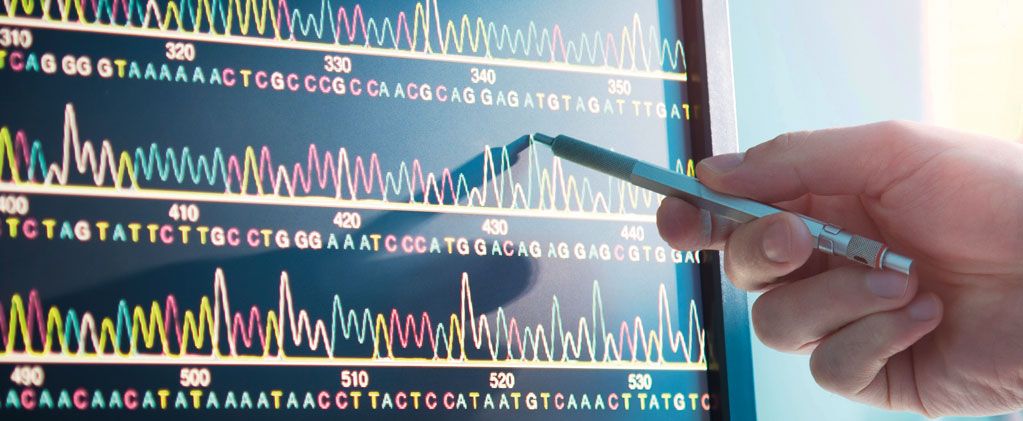Target audience
DNA reporting officers with experience in writing statements given sub-source level propositions. Participants are expected to have a good theoretical and practical background in probabilistic reasoning, as well as up-to-date knowledge in the field of evaluation of DNA profile comparisons.
The course is given in English. For exercises, discussions and one-to-one tutorials, English or French are available as further languages.
Introduction
This advanced online course focuses on how to assess biological results given activity level propositions in order to promote a safe administration of justice. It is designed to train practitioners in the most up-to-date approaches to the evaluation of biological results. The content is based on the use of likelihood ratios, an approach that is supported by the International Society of Forensic Genetics, and a variety of reference documents, guidance notes and standards, across jurisdictions.
The course relies on the use of Bayesian networks (BN) for the probabilistic evaluation of biological results, when the issue regards not so much the source of the DNA, but the activities from which it resulted.
The course team also offers two other online short courses: Essentials of DNA interpretation, a first approach of DNA interpretation, and Essentials of forensic interpretation. In addition to these short courses, a Certificate of Advanced Studies (CAS) in Statistics and the Evaluation of Forensic Evidence is proposed to forensic practitioners willing to acquire a comprehensive training.
Objectives
- To be able to address DNA casework given activity level propositions
- To be able to explain evaluative reasoning in court and feel at ease with expert debate and the published literature
- To have specialized and up-to-date knowledge in the field of evaluation of forensic biological results when accounting for transfer, persistence, recovery and prevalence of biological trace material
- To feel at ease in writing communications on how to convey the value of biological results when propositions refer to activities
Modules
1. REVISITING UNCERTAINTY IN FORENSIC SCIENCE AND PROBABILISTIC INFERENCE
- Laws of probability
- Hierarchy of propositions and principles of forensic interpretation
2. EVALUATION USING BAYESIAN NETWORKS (BNs): GENERAL ASPECTS AND SOFTWARE FUNCTIONALITIES
- Capturing probabilistic reasoning through BNs
- Methodology for constructing BNs
3. CASE PRE-ASSESSMENT
- Management of cases and needs
- Use of BNs for case pre-assessment
4. ASSESSING THE ABSENCE OF MATCHING DNA
- Likelihood ratio formula, source of data, building BNs
5. EVALUATION OF TRACES RECOVERED ON A VICTIM OR A CRIME SCENE
- Further technical issues
- Case examples: assessing and reporting results
6. EVALUATION OF TRACES RECOVERED ON A SUSPECT
- Case studies: from pre-assessment to reporting
7. COMBINING RESULTS IN ALLEGED SEXUAL OFFENCES
- Assessing results from presumptive tests, differential extraction and DNA analysis
8. CASE STUDIES
Academic Directors
Instructors
- Dr. Sc. Tacha Hicks, Faculty of Law, Criminal Justice and Public Administration, UNIL
- Professor Alex Biedermann, Faculty of Law, Criminal Justice and Public Administration, UNIL
- Professor Christophe Champod, Faculty of Law, Criminal Justice and Public Administration, UNIL
- Professor Franco Taroni, Faculty of Law, Criminal Justice and Public Administration, UNIL
Consultants
- Prof. Colin Aitken, University of Edinburgh, Scotland
- Dr. Sc. Ian Evett, Principal Forensic Services Ltd., England
- Dr. Sc. Duncan Taylor, Forensic Science South Australia & Flinders University
The instructors have theoretical and practical experience with evaluation and interpretation from laboratory to courtroom. They have published over the years numerous scholarly papers and textbooks on the subjects of evaluation and statistics in forensic science.
Certification
- Certificate of achievement with 5 ECTS credits if the candidate passes the written on-line examination that takes place at the end of the course.
Consult the regulations for the award of ECTS credits in the framework of a non-certifying programme (in French) as well as the specific award conditions for the course Advanced DNA interpretation
Organisation
Programme coordination
- For academic questions: sefe@unil.ch
Practical information
Course venue
Online course
Dates and schedule
From January 2026 to February 2027
The course lasts 13 months with a workload per week of 4 hours on the online platform. Course breaks and holidays are included to allow flexibility.
Registration
Fill in the online registration form and upload your CV and copies of your diplomas online.
Course fee*
4,500.- Swiss Francs * (including a time-limited version of a Bayesian networks software)
*10% special discount for all participants who take a second course given by the committee
Registration deadline
November 14, 2025



